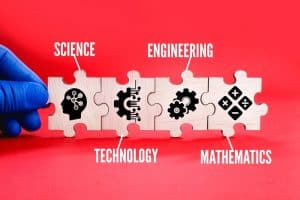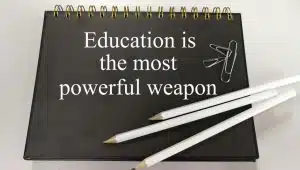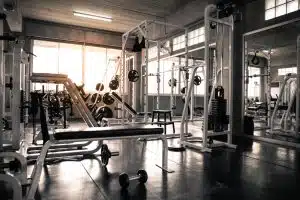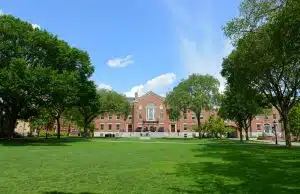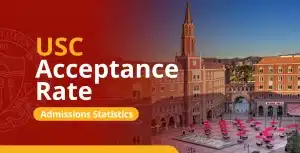The Benefits of Enrolling in a Private School
Private schools offer a range of benefits for enrolling students and their families. In this comprehensive overview, we will delve into the various advantages of private school education, the role of teachers in private schools, the opportunities for extracurricular activities, and the preparation private schools provide for college and beyond. Additionally, we will explore the considerations when evaluating the cost of private school education and making the decision if it is the right fit for your child.
Understanding the Benefits of Enrolling in a Private School for Education
Definition and Overview of Private Schools
Private schools are educational institutions that operate independently from the government. They are funded by tuition fees, donations, and sometimes religious or other private organizations. Unlike public schools, private schools have more flexibility in terms of curriculum and school policies.
Private schools come in various forms, including day schools, boarding schools, and religious schools. Day schools are the most common type of private schools, where students attend classes during the day and return home in the evenings. Boarding schools, on the other hand, provide students with a residential environment, where they live and study on campus. Religious schools, as the name suggests, have a religious affiliation and incorporate religious teachings into their curriculum.
Private schools often have smaller class sizes compared to public schools, allowing for more individualized attention and personalized instruction. This can be particularly beneficial for students who may require additional support or have specific learning needs.
The Philosophy Behind Private School Education
Private schools have various educational philosophies that guide their approach to teaching and learning. This diversity allows families to choose a school that aligns with their own values and priorities.
Some private schools focus on academic excellence, providing rigorous coursework and challenging educational programs. These schools often prioritize college preparation and aim to equip students with the necessary skills and knowledge to succeed in higher education and beyond.
Other private schools emphasize a holistic approach to education, nurturing students’ character development alongside intellectual growth. These schools prioritize the development of well-rounded individuals, focusing not only on academic achievement but also on social and emotional skills, physical fitness, and creative expression.
Furthermore, private schools often offer a wide range of extracurricular activities and opportunities for students to explore their interests and talents outside of the classroom. This can include sports teams, clubs, arts programs, community service initiatives, and more.
Private schools also tend to have a strong sense of community and often foster close relationships between students, parents, and teachers. This supportive environment can contribute to a positive and enriching educational experience.
Additionally, private schools often have a greater degree of autonomy in shaping their curriculum and teaching methods. This flexibility allows educators to tailor their instruction to meet the specific needs and interests of their students, fostering a more personalized learning experience.
In conclusion, private schools offer a unique educational experience characterized by smaller class sizes, diverse educational philosophies, and a focus on academic excellence or holistic development. They provide families with the opportunity to choose a school that aligns with their values and priorities and often offers a wide range of extracurricular activities and a strong sense of community.
Key Advantages of Enrolling in a Private School
Personalized Learning Experience
One significant advantage of private schools is their ability to provide a personalized learning experience. With smaller class sizes and often lower student-to-teacher ratios, private schools can tailor instruction to meet the individual needs of each student. This allows for a more focused and targeted approach to education, fostering a deeper understanding of the material.
Imagine a classroom where the teacher knows every student by name, understands their strengths and weaknesses, and can adapt the curriculum accordingly. In private schools, this is not just a dream but a reality. Teachers have the time and resources to truly get to know their students and create personalized lesson plans that cater to their unique learning styles. Whether a student needs extra support in a particular subject or is ready for more advanced material, private schools can provide the necessary guidance and support.
Moreover, the personalized learning experience extends beyond academics. Private schools often prioritize the holistic development of students, taking into account their social, emotional, and physical well-being. By understanding each student as an individual, private schools can provide the necessary support and guidance to help them thrive in all aspects of their lives.
Smaller Class Sizes
In private schools, smaller class sizes mean more individual attention for students. Teachers can engage more closely with each student, ensuring that no one gets left behind. This intimate learning environment facilitates meaningful discussions, and active participation, and fosters a sense of belonging within the classroom community.
Imagine a classroom where students are not just a number but an integral part of a close-knit community. In private schools, this is the norm. With smaller class sizes, students have the opportunity to build strong relationships with their peers and teachers. They can actively participate in class discussions, ask questions without hesitation, and receive immediate feedback on their work.
Furthermore, smaller class sizes allow teachers to address the individual needs of each student more effectively. They can identify areas where students may be struggling and provide targeted support to help them overcome challenges. This personalized attention not only improves academic performance but also boosts students’ confidence and self-esteem.
Enhanced Academic Opportunities
Private schools often offer enhanced academic opportunities that go beyond the standard curriculum. They may provide advanced placement courses, specialized programs in STEM (science, technology, engineering, and mathematics), or access to unique resources such as state-of-the-art laboratories or dedicated arts facilities. These additional offerings can provide students with a competitive edge and a well-rounded education.
Imagine a school where students have the opportunity to explore their passions and interests beyond the basic curriculum. In private schools, this is a reality. With a focus on providing a comprehensive education, private schools offer a wide range of academic opportunities that cater to diverse interests and talents.
For students interested in pursuing advanced studies, private schools often offer advanced placement courses that allow them to earn college credits while still in high school. This not only challenges students academically but also prepares them for the rigors of higher education. Additionally, private schools may have specialized programs in STEM fields, providing students with hands-on experiences and exposure to cutting-edge technology.
Moreover, private schools often invest in state-of-the-art facilities and resources to enhance the learning experience. From well-equipped laboratories for scientific experiments to dedicated arts facilities for creative expression, private schools provide students with the tools they need to excel in their chosen fields.
Overall, the enhanced academic opportunities offered by private schools broaden students’ horizons, ignite their curiosity, and prepare them for success in an increasingly competitive world.
The Role of Teachers in Enrolling in a Private School
Private schools play a crucial role in shaping the educational landscape, and one of the key factors that sets them apart is the caliber of teachers they employ. These institutions prioritize hiring highly qualified educators who possess not only the necessary academic credentials but also a genuine passion for teaching. As a result, private schools are able to create a learning environment that is both intellectually stimulating and emotionally supportive.
Highly Qualified Educators
When it comes to private schools, there is a strong emphasis on hiring teachers who are experts in their respective subject areas. These educators often hold advanced degrees and have extensive experience in their fields. This level of expertise allows them to impart knowledge with confidence and precision, ensuring that students receive a high-quality education.
Moreover, the commitment of private school teachers goes beyond simply imparting knowledge. They are dedicated professionals who invest their time and energy in staying updated with the latest developments in their fields. This continuous professional development enables them to bring fresh perspectives and innovative teaching methods into the classroom, making the learning experience more dynamic and engaging.
Teacher-Student Relationship for Enrolling in a Private School
Private schools are known for their smaller class sizes, which create an ideal setting for fostering strong relationships between teachers and students. With fewer students to attend to, teachers can truly get to know each individual and understand their unique strengths, weaknesses, and learning styles.
This personalized attention allows teachers to tailor their instruction to meet the specific needs of each student. They can provide individualized guidance and support, helping students overcome challenges and reach their full potential academically and personally. This level of personalized care and attention not only enhances academic performance but also nurtures the overall well-being of students, fostering a sense of belonging and self-confidence.
Furthermore, the close teacher-student relationship in private schools often extends beyond the classroom. Teachers serve as mentors and role models, offering guidance and support in various aspects of students’ lives. This holistic approach to education ensures that students receive not only academic instruction but also valuable life skills and character development.
In conclusion, the role of teachers in private schools is multifaceted and integral to the overall success of these institutions. By hiring highly qualified educators and fostering strong teacher-student relationships, private schools create an environment that promotes academic excellence, personal growth, and lifelong learning.
Extracurricular Activities and Opportunities
Sports Programs for Enrolling in a Private School
Private schools often offer a wide range of sports programs that cater to students’ different interests and abilities. These programs provide opportunities for physical fitness, skill development, teamwork, and healthy competition. Participating in sports can also promote qualities such as discipline, leadership, and perseverance.
Furthermore, private schools understand the significance of a well-rounded education and the role that sports play in achieving this goal. They recognize that participating in sports not only benefits students physically but also contributes to their overall personal growth and development. By engaging in sports programs, students have the chance to learn valuable life skills such as time management, goal setting, and resilience.
Moreover, private schools often have state-of-the-art sports facilities and equipment, enabling students to train and compete in a conducive environment. These schools also have dedicated and experienced coaches who provide guidance and mentorship to help students reach their full athletic potential. Whether it’s basketball, soccer, swimming, or track and field, private schools offer a diverse range of sports programs to cater to every student’s interests and talents.
Arts and Culture Exposure
Many private schools emphasize the importance of arts and culture in education. They offer diverse opportunities in visual arts, music, drama, and dance. Through exposure to various art forms and cultural experiences, students can cultivate their creativity, self-expression, and appreciation for different perspectives.
In addition to traditional art classes, private schools often invite renowned artists, musicians, and performers to conduct workshops and masterclasses. These interactions provide students with unique learning experiences and the chance to gain insights from professionals in their respective fields. Private schools also organize art exhibitions, musical performances, and theater productions, allowing students to showcase their talents and share their artistic expressions with the school community.
Furthermore, private schools understand that arts education is not limited to the classroom. They organize field trips to museums, galleries, theaters, and cultural events to expose students to a wide range of artistic and cultural experiences. By immersing themselves in different art forms and cultural practices, students develop a global perspective and a deeper understanding of the world around them.
Private schools also provide opportunities for students to participate in competitive art competitions, music festivals, and drama festivals. These events not only allow students to showcase their skills and talents but also foster a sense of healthy competition and camaraderie among participants.
Preparing for the Future: College and Beyond
As students approach the end of their high school journey, the question of what lies ahead becomes increasingly important. Private schools understand the significance of preparing students for higher education and beyond. They recognize that a well-rounded education goes beyond academics and includes guidance on college preparation and career planning.
College Preparation Programs
Private schools go above and beyond to provide comprehensive college preparation programs. These programs are designed to equip students with the necessary skills and knowledge to succeed academically and make informed decisions about their future. From guidance on course selection to standardized test preparation, private schools leave no stone unturned in preparing their students for the college application process.
But it doesn’t stop there. Private schools understand that college preparation is not just about meeting academic requirements. They also focus on helping students develop essential life skills, such as time management, critical thinking, and effective communication. These skills are crucial for success in college and beyond.
Career Guidance and Counseling
Private schools recognize that preparing students for the future goes beyond college. They prioritize career guidance and counseling to ensure that students are well-prepared to navigate the challenges and opportunities that lie ahead in their professional lives.
Through career guidance programs, private schools offer resources and support to help students explore various career options. They provide opportunities for students to engage in internships, job shadowing, and mentorship programs, allowing them to gain practical experience and insight into different industries.
Private schools also focus on helping students develop essential skills that are highly valued in the workplace. They offer workshops and seminars on resume writing, interview skills, and networking, empowering students to confidently enter the job market.
Furthermore, private schools understand that career planning is a continuous process. They provide ongoing support and guidance, even after students have graduated. Alumni networks and career services departments are available to assist graduates in finding job opportunities, making career transitions, and staying connected with industry professionals.
By prioritizing both college preparation and career guidance, private schools ensure that their students are well-equipped to make informed decisions about their future. They understand that education is not just about acquiring knowledge but also about preparing students for a fulfilling and successful life beyond the classroom.
Evaluating the Cost of Enrolling in a Private School for Education
Choosing the right education for your child is a decision that requires careful consideration. One factor that often comes into play is the cost of private school education. While private schools are known for their high-quality education and smaller class sizes, they do come with a price tag. Tuition fees are the primary cost associated with private schools, but it is essential to delve deeper into the financial aspects to make an informed decision.
Tuition and Other Expenses
When evaluating the cost of private school education, it is crucial to consider not only the tuition fees but also the additional expenses that may arise. Public schools may seem like a more affordable option at first glance, but they come with their own set of costs. Transportation expenses, such as bus fares or fuel costs for commuting, can add up significantly over time. Private schools, on the other hand, often provide transportation services, saving families from this additional expense.
Uniforms are another expense that families need to consider when comparing private and public schools. While public schools may have dress codes, private schools often require specific uniforms, which can be costly. However, it is worth noting that uniforms can also eliminate the need for regular clothing shopping, as students wear the same attire every day.
Extracurricular activities are an essential part of a well-rounded education. Public schools may offer extracurricular activities, but they often come with participation fees. Private schools, on the other hand, usually include these activities as part of their curriculum, reducing the need for additional expenses. This allows students to explore their interests and passions without worrying about the financial burden it may place on their families.
Textbooks are another consideration when evaluating the cost of education. Public schools typically provide textbooks to students, but they may need to be returned at the end of the year. Private schools, on the other hand, often require students to purchase their textbooks. While this may seem like an additional cost, it also means that students can keep their textbooks as reference materials for future use.
Financial Aid and Scholarships in Private Schools
Private schools understand that the cost of education can be a barrier for some families. To make their education more accessible, many private schools offer financial aid and scholarships. These opportunities can help offset the tuition fees and make private school education a possibility for families who may not have otherwise considered it.
When exploring financial aid options, it is essential for families to discuss their financial circumstances with the school administration. Private schools often have a dedicated financial aid office that can guide families through the application process and provide information on available scholarships. By taking advantage of these opportunities, families can make private school education more affordable and within reach.
Financial aid and scholarships not only provide financial relief but also open doors to a diverse range of students. Private schools strive to create a community that reflects different backgrounds and perspectives, and offering financial assistance is one way to achieve this goal. By embracing diversity, private schools create an inclusive learning environment that benefits all students.
In conclusion, evaluating the cost of private school education goes beyond the tuition fees. Families need to consider the additional expenses associated with public schools and compare the total cost of education. Financial aid and scholarships provided by private schools can make their education more accessible and affordable for families. By exploring these opportunities and discussing their financial circumstances with the school administration, families can make an informed decision about the affordability and value of private school education for their children.
Making the Decision: Is Private School Right for Your Child?
Factors to Consider
When deciding whether private school is the right fit for your child, it is crucial to consider various factors. These include your child’s learning style, academic goals, extracurricular interests, and personal values. By evaluating these aspects, you can determine if a private school will provide an environment where your child can thrive.
Assessing Your Child’s Needs and Goals
Understanding your child’s unique needs and goals is integral to making an informed decision. Consider discussing with your child their preferences, aspirations, and expectations regarding their education. This collaboration will ensure that their voice is heard and that the chosen private school can support them in realizing their full potential.
In conclusion, enrolling in a private school offers numerous benefits such as personalized learning experiences, smaller class sizes, enhanced academic opportunities, dedicated teachers, a wide range of extracurricular activities, and comprehensive preparation for college and career. While the costs of private school education may require careful evaluation, the availability of financial aid and scholarships can make it more accessible to students from diverse backgrounds. Ultimately, the decision to enroll your child in a private school should be based on a thorough consideration of their individual needs, goals, and values.






